Recent Blog Posts
How Does a Cramdown Work in Bankruptcy?
 If you owe more on your car than it is worth, bankruptcy may offer a solution called a cramdown. A cramdown allows you to reduce what you owe on certain loans to match the actual value of the property. This powerful tool can save you thousands of dollars and make your monthly payments much more affordable.
If you owe more on your car than it is worth, bankruptcy may offer a solution called a cramdown. A cramdown allows you to reduce what you owe on certain loans to match the actual value of the property. This powerful tool can save you thousands of dollars and make your monthly payments much more affordable.
Understanding how cramdowns work can help you decide whether Chapter 13 bankruptcy is right for you in 2026. Our Montgomery County consumer bankruptcy attorney has more than 20 years of experience helping people reduce their debt and get a fresh start. Call us today.
What Is a Cramdown in Bankruptcy?
A cramdown is a legal process available in Chapter 13 bankruptcy that lets you reduce the principal balance on certain secured debts. A secured debt is a loan where the lender has a lien on specific property, like a car loan or furniture financing. If you stop paying, the lender can repossess that property.
How Chapter 7 Could Affect Maryland Professional Licenses
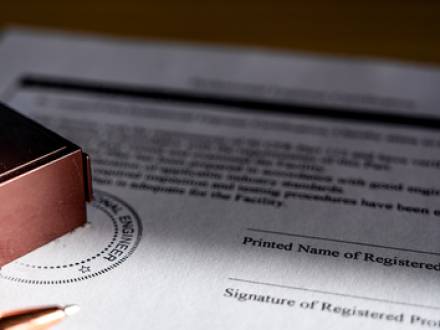 When you are in the midst of filing for bankruptcy, how it could affect your professional credentials may be one thing you did not consider. Many licensing boards, especially those for healthcare workers, real estate agents, contractors, and financial professionals, require self-reporting of bankruptcy and may investigate any type of conduct that leads to insolvency.
When you are in the midst of filing for bankruptcy, how it could affect your professional credentials may be one thing you did not consider. Many licensing boards, especially those for healthcare workers, real estate agents, contractors, and financial professionals, require self-reporting of bankruptcy and may investigate any type of conduct that leads to insolvency.
While filing Chapter 7 bankruptcy can stop wage garnishments and help you get a fresh financial start, you could be shocked and dismayed to receive a notice from your licensing board weeks later demanding documents, financial explanations, or notice of compliance. Even worse, a Chapter 7 filing can delay renewal and trigger disciplinary action.
It is crucial that you fully understand the potential risks to your professional license. A knowledgeable Greenbelt, MD bankruptcy lawyer can help you determine whether bankruptcy will affect your professional license before you file.
What Income Is Exempt in a Maryland Chapter 7 Bankruptcy?
 When a person files for Chapter 7 bankruptcy in Maryland, one of the biggest fears is often the fear of losing everything – including the income relied on to survive. Fortunately, bankruptcy law does not take into account every source of income. Both federal and Maryland exemption laws protect specific types of earnings and benefits from being seized by the bankruptcy trustee.
When a person files for Chapter 7 bankruptcy in Maryland, one of the biggest fears is often the fear of losing everything – including the income relied on to survive. Fortunately, bankruptcy law does not take into account every source of income. Both federal and Maryland exemption laws protect specific types of earnings and benefits from being seized by the bankruptcy trustee.
If you are wondering whether all your income will be taken in bankruptcy, it can be beneficial to speak to a knowledgeable Greenbelt, MD Chapter 7 bankruptcy attorney. Your attorney can help you determine whether filing for Chapter 7 is correct for you.
Understanding Income in a Maryland Chapter 7 Bankruptcy Case
Those who file for Chapter 7 bankruptcy must pass a means test in Maryland. This is used to determine whether the debtor’s income is low enough to qualify for Chapter 7 bankruptcy, following a two-step process. The initial step requires the calculation of current monthly income (CMI) by averaging all sources of your gross income over the six months prior to filing.
Maryland’s "Tools of the Trade" Rule for Gig Workers
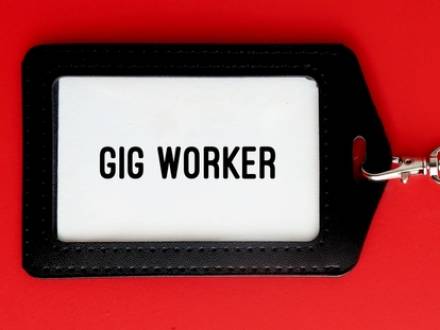 Many Marylanders filing for bankruptcy today are not nine-to-fivers, factory workers, or farmers. This new group of workers works in the gig economy, driving for Uber, writing, editing, or creating websites from laptops at home, delivering DoorDash food orders, or managing any number of online side businesses.
Many Marylanders filing for bankruptcy today are not nine-to-fivers, factory workers, or farmers. This new group of workers works in the gig economy, driving for Uber, writing, editing, or creating websites from laptops at home, delivering DoorDash food orders, or managing any number of online side businesses.
Some use gig work as a supplement to their "regular" income, while others depend on this type of work to fully support them. Yet when these debtors file for bankruptcy, they depend on the same basic protections that once applied only to carpenters and tradesmen. This is the "Tools of the Trade" exemption under Maryland Code Section 11-504(b)(1).
In this modern era of remote work, self-employment, gig work, and digital hustles, what counts as "tools of the trade" is changing quickly, and Maryland courts are beginning to take notice. If you are a gig worker considering bankruptcy, you must speak with an experienced Silver Spring, MD consumer bankruptcy attorney.
When Chapter 7 Leaves Friends or Family Co-signers on the Hook
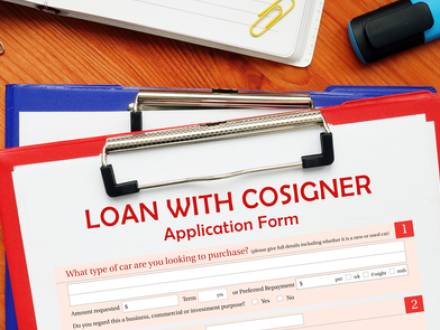 Perhaps you are considering filing for bankruptcy and are wondering how it may affect someone who co-signed a loan for you. Or, maybe you are the cosigner and have just discovered that the person you co-signed a loan for is filing for Chapter 7 bankruptcy.
Perhaps you are considering filing for bankruptcy and are wondering how it may affect someone who co-signed a loan for you. Or, maybe you are the cosigner and have just discovered that the person you co-signed a loan for is filing for Chapter 7 bankruptcy.
How does a bankruptcy filing affect a co-signer – or does it? While filing for Chapter 7 bankruptcy in Maryland can wipe out overwhelming personal debt, giving an individual a fresh financial start, when loans are co-signed, the consequences can go far beyond those to the debtor.
It is essential that both the debtor and the cosigner understand their positions in the event that Chapter 7 bankruptcy is filed. While Chapter 7 can erase the debtor’s liability, it may not automatically release the financial responsibility of a cosigner. Before making any financial or legal decisions regarding Chapter 7 bankruptcy, speak to a knowledgeable Hyattsville, MD bankruptcy lawyer.
Chapter 13 in Maryland: Is Social Security Income Enough?
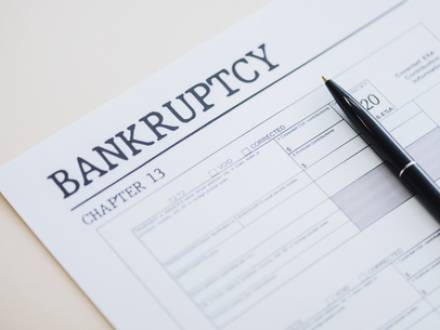 Filing for Chapter 13 bankruptcy in Maryland can help you protect important assets and reorganize your debts. Only those with a steady income and the ability to make consistent monthly payments will qualify for Chapter 13. But what if Social Security is your only source of income? Could you still qualify under Chapter 13 bankruptcy requirements?
Filing for Chapter 13 bankruptcy in Maryland can help you protect important assets and reorganize your debts. Only those with a steady income and the ability to make consistent monthly payments will qualify for Chapter 13. But what if Social Security is your only source of income? Could you still qualify under Chapter 13 bankruptcy requirements?
The short answer to this question is that while Social Security income is protected from creditors and generally excluded from the bankruptcy means test, it can still be used to fund a Chapter 13 plan in many cases. Perhaps you have questions regarding whether Chapter 13 (RULE 3015-1) bankruptcy is right for you and whether it can be funded with your monthly Social Security check. Consulting with an experienced Takoma Park, MD bankruptcy attorney can ensure you are on the right track.
How a Business Owner Files for Personal Bankruptcy in Maryland
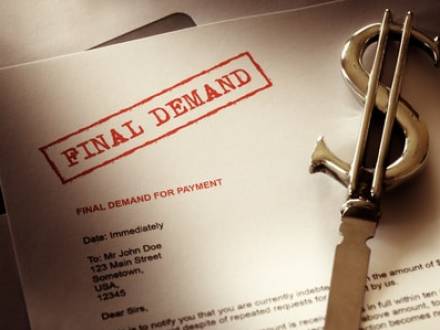 Far from making you immune to financial struggles, owning a small business can result in mounting debts that spill over into your personal life. If you have signed personal guarantees or mixed business and personal finances, the likelihood of this occurring increases significantly. If you are overwhelmed by credit card debt, medical debt, or business-related liabilities, you could potentially find relief by filing for personal bankruptcy.
Far from making you immune to financial struggles, owning a small business can result in mounting debts that spill over into your personal life. If you have signed personal guarantees or mixed business and personal finances, the likelihood of this occurring increases significantly. If you are overwhelmed by credit card debt, medical debt, or business-related liabilities, you could potentially find relief by filing for personal bankruptcy.
The process can be complex when you are trying to keep your business afloat. If you are a Maryland business owner, it is essential that you have accurate information in order to make a smart decision regarding filing for personal bankruptcy without risking everything you have worked for. Now is the time to speak to a knowledgeable College Park, MD bankruptcy attorney.
What is the Difference Between Personal and Business Bankruptcy?
Personal bankruptcy provides individuals with a fresh financial start by either discharging or reorganizing their debts. Personal bankruptcy involves personal assets, and state-specific exemptions determine which assets are protected from creditors. Individuals file under Chapter 7 (liquidation) or Chapter 13 (repayment plan).
What Is the Brunner Test?
 Student loans are a significant source of debt for many Americans. If you have a great deal of student loan debt you may be wondering whether it can be discharged in bankruptcy. While student loans are among the most difficult debts to discharge in bankruptcy, it is still possible to discharge student loans in some cases. Most courts use the Brunner Test, a legal test that was developed in case law, to determine whether student loans are dischargeable in a given case. An experienced Greenbelt, MD bankruptcy attorney can represent you in bankruptcy and help you discharge student loan debt.
Student loans are a significant source of debt for many Americans. If you have a great deal of student loan debt you may be wondering whether it can be discharged in bankruptcy. While student loans are among the most difficult debts to discharge in bankruptcy, it is still possible to discharge student loans in some cases. Most courts use the Brunner Test, a legal test that was developed in case law, to determine whether student loans are dischargeable in a given case. An experienced Greenbelt, MD bankruptcy attorney can represent you in bankruptcy and help you discharge student loan debt.
Are Student Loans Dischargeable in Bankruptcy?
Unlike credit cards, medical bills, and most other unsecured debts that are eliminated in bankruptcy, discharging student loans in bankruptcy is not easy. They typically survive bankruptcy proceedings and continue to follow borrowers even after they receive a discharge of their other debts.
Can Medical Debt Be Discharged in Bankruptcy?
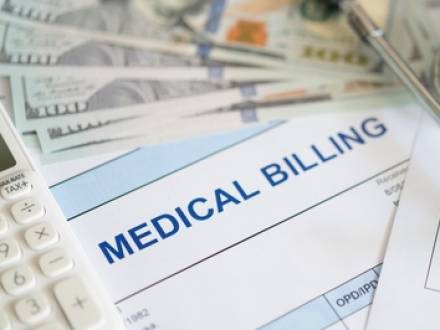 Between sky-high health insurance costs, deductibles, and unforeseen charges, medical care costs can really add up. And if you have to face an unforeseen medical emergency or serious illness, those costs can get even higher. The result is that many people rack up considerable medical debt. The good news is that Chapter 7 bankruptcy can discharge many types of medical debt. This type of debt is such a common reason that people file for bankruptcy—an estimated 66.5 percent of all consumer bankruptcies, according to the Consumer Financial Protection Bureau (CFPB)—that there is even a term for it: medical bankruptcy. An experienced Greenbelt, MD medical debt and bankruptcy attorney can advise you on whether filing for bankruptcy to discharge your medical debts can be the best option for you.
Between sky-high health insurance costs, deductibles, and unforeseen charges, medical care costs can really add up. And if you have to face an unforeseen medical emergency or serious illness, those costs can get even higher. The result is that many people rack up considerable medical debt. The good news is that Chapter 7 bankruptcy can discharge many types of medical debt. This type of debt is such a common reason that people file for bankruptcy—an estimated 66.5 percent of all consumer bankruptcies, according to the Consumer Financial Protection Bureau (CFPB)—that there is even a term for it: medical bankruptcy. An experienced Greenbelt, MD medical debt and bankruptcy attorney can advise you on whether filing for bankruptcy to discharge your medical debts can be the best option for you.
Choosing Between a Chapter 7 or Chapter 13 Bankruptcy
 For the average person, Chapter 7 and Chapter 13 are the most likely bankruptcy options when looking for debt relief. As you navigate your choices, knowing about the pros and cons of both will help you make an informed decision about your financial future. If you have questions or concerns, a Prince George’s County, MD bankruptcy attorney can offer advice rooted in experience.
For the average person, Chapter 7 and Chapter 13 are the most likely bankruptcy options when looking for debt relief. As you navigate your choices, knowing about the pros and cons of both will help you make an informed decision about your financial future. If you have questions or concerns, a Prince George’s County, MD bankruptcy attorney can offer advice rooted in experience.
Definitions of Chapter 7 and Chapter 13 Bankruptcy
Chapter 7 bankruptcy is commonly called liquidation bankruptcy because it allows you to give up property to pay debts while protecting certain assets. For example, some Chapter 7 exemptions include qualified retirement plans and social security benefits. People often wonder if they can keep their home, and in many cases, they can. Exemptions typically include protections for home equity.
Chapter 13 bankruptcy is more of a plan designed to help you pay off your debts in smaller amounts. The terms include an end date, and when it concludes, the debt that remains is wiped away.






